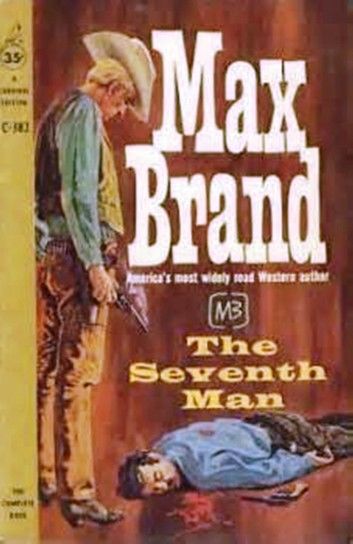A man under thirty needs neighbors and to stop up the current of his life with a long silence is like obstructing a river—eventually the water either sweeps away the dam or rises over it, and the stronger the dam the more destructive is that final rush to freedom. Vic Gregg was on the danger side of thirty and he lived alone in the mountains all that winter. He wanted to marry Betty Neal, but marriage means money, therefore Vic contracted fifteen hundred dollars' worth of mining for the Duncans, and instead of taking a partner he went after that stake single handed. He is a very rare man who can turn out that amount of labor in a single season, but Gregg furnished that exception which establishes the rule: he did the assessment work on fourteen claims and almost finished the fifteenth, yet he paid the price. Week after week his set of drills was wife and child to him, and for conversation he had only the clangor of the four-pound single-jack on the drill heads, with the crashing of the "shots" now and then as periods to the chatter of iron on iron. He kept at it, and in the end he almost finished the allotted work, but for all of it he paid in full.
The acid loneliness ate into him. To be sure, from boyhood he knew the mountain quiet, the still heights and the solemn echoes, but towards the close of the long isolation the end of each day found him oppressed by a weightier sense of burden; in a few days he would begin to talk to himself.
From the first the evening pause after supper hurt him most, for a man needs a talk as well as tobacco, and after a time he dreaded these evenings so bitterly that he purposely spent himself every day, so as to pass from supper into sleep at a stride. It needed a long day to burn out his strength thoroughly, so he set his rusted alarm-clock, and before dawn it brought him groaning out of the blankets to cook a hasty breakfast and go slowly up to the tunnel. In short, he wedded himself to his work; he stepped into a routine which took the place of thought, and the change in him was so gradual that he did not see the danger.
A mirror might have shown it to him as he stood this morning at the door of his lean-to, for the wind fluttered the shirt around his labor-dried body, and his forehead puckered in a frown, grown habitual. It was a narrow face, with rather close-set eyes and a slanted forehead which gave token of a single- track mind, a single-purposed nature with one hundred and eighty pounds of strong sinews and iron-hard muscle to give it significance. Such was Vic Gregg as he stood at the door waiting for the coffee he had drunk to brush away the cobwebs of sleep, and then he heard the eagle scream.
A great many people have never heard the scream of an eagle. The only voice they connect with the kind of the air is a ludicrously feeble squawk, dim with distance, but in his great moments the eagle has a war-cry like that of the hawk, but harsher, hoarser, tenfold in volume. This sound cut into the night in the gulch, and Vic Gregg started and glanced about for echoes made the sound stand at his side; then he looked up, and saw two eagles fighting in the light of the morning. He knew what it meant—the beginning of the mating season, and these two battling for a prize. They darted away. They flashed together with reaching talons and gaping beaks, and dropped in a tumult of wings, then soared and clashed once more until one of them folded his wings and dropped bulletlike out of the morning into the night. Close over Gregg's head, the wings flirted out—ten feet from tip to tip—beat down with a great washing sound, and the bird shot across the valley in a level flight. The conqueror screamed a long insult down the hollow. For a while he balanced, craning his bald head as if he sought applause, then, without visible movement of his wings, sailed away over the peaks. A feather fluttered slowly down past Vic Gregg.












